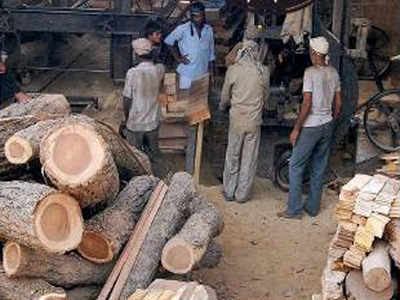
Asia’s biggest notified Imported Timber Conversion Zone, in the district of Kutch (in Gujarat in western India), is struggling, according to a report in The Times of India.
A reduction in demand has forced several sawmills to cut production, and the high Goods and Services Tax (GST) and a depreciation of the rupee have eroded their margins. GST is applicable to any goods or services imported into or exported from India.
The rate of the GST on timber imports is currently 18%.
The Kandla Timber Association has requested a reduction in the rate of the IGST to 5%.
The upfront payment of GST and other expenses is a high imposition on the industry, which may take up to 8 months to manufacture and sell the finished products using the imported timber (and thereby recoup GST outlays).
Nearly 70% of India’s timber imports go through ports in Kandla and Mundra. India’s largest timber cluster lies within 15 km of Deendayal Port, previously known as Kandla Port, stretching between Gandhidham and Anjar.
The Deendayal Port Trust’s plan to develop a furniture park in the region has hit a roadblock, with industry players reluctant to take up plots on lease due to high rent.





